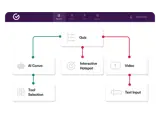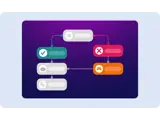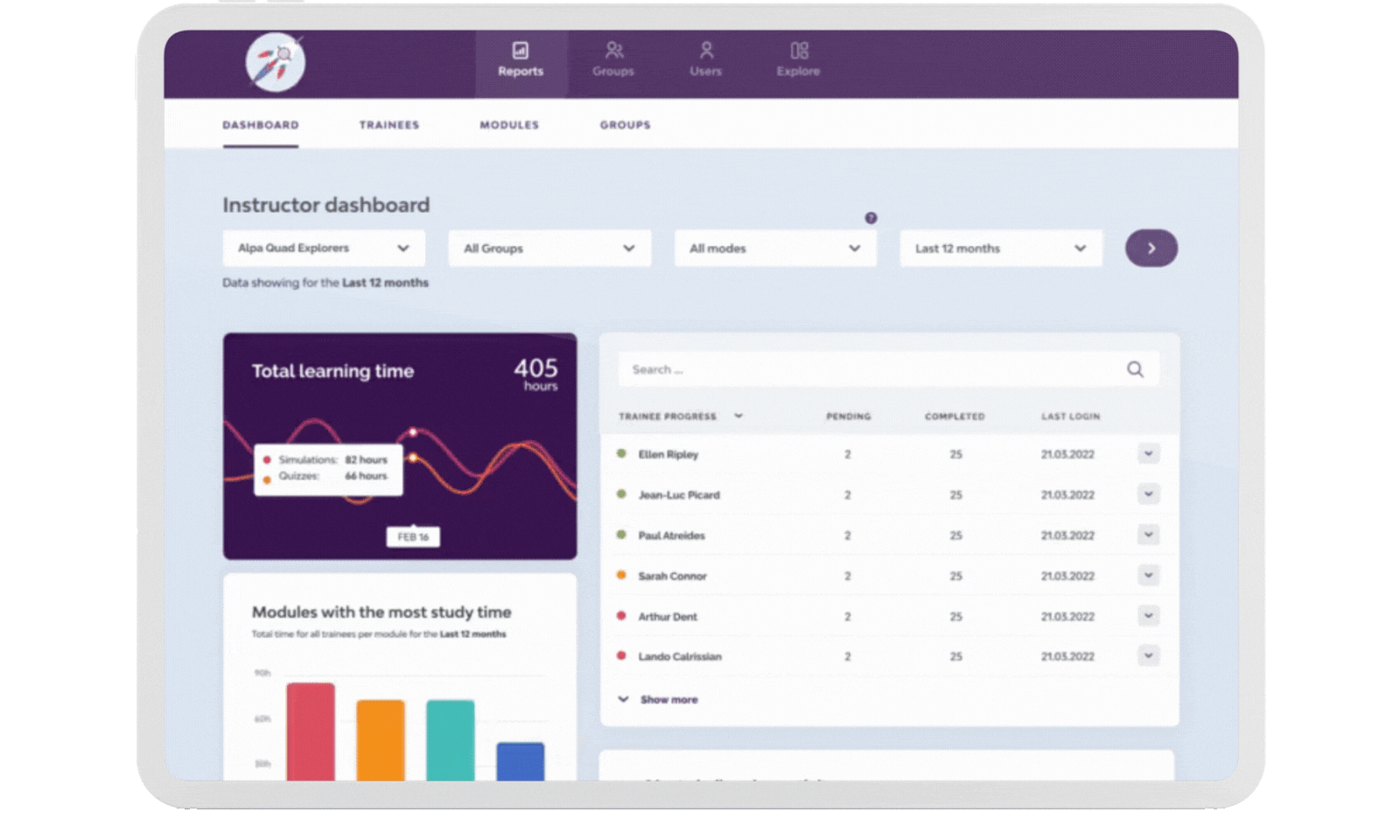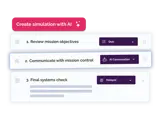
Bring Training to Life with Simulations
Train smarter with interactive learning that turns knowledge into real-world expertise.

A Smarter Approach to Training
Traditional training, manuals, lectures, and slide decks can only take people so far. It’s one thing to read about what to do, but it’s another to actually do it.
SimTutor Author gives you the power to create training simulations that replicate the real decisions, tools, and challenges your learners will face on the job to bridge the gap between theory and practice. Instead of just memorizing information, learners engage in immersive, job-specific scenarios where they can think critically, make decisions, and refine their skills in a risk-free environment. The result? A more prepared workforce, fewer mistakes, and better outcomes.
How it Works

Upload your existing content
Get started quickly by utilizing the training materials you already have, such as slide decks, videos, and images.

Make it interactive
Choose from multiple step types and use our easy drag-and-drop simulation builder to create training flows that mirror your real-life processes.

Publish and share
Send simulations directly to your learners or export to your LMS. Training is available anytime, and results are easy to track.
Customizable Simulations for Real-World Scenarios
No two jobs are the same, and your training shouldn’t be either. SimTutor Author lets you create fully customizable simulations that reflect your team’s unique processes, equipment, and environment.
Using simple drag-and-drop tools, you can turn existing training materials, like images, videos, and slide decks, into immersive, interactive learning experiences.
You don’t need to be a developer. You just need to know what your learners need to succeed.
Build Smarter & Faster with AI Assistance
Turn your training goal into an interactive simulation in minutes. SimTutor's built-in AI tools allow you to enter in your training goal and receive the ideal sequence of steps, the most effective step types, and the best ways to present information and practice activities.
You stay in control, with the ability to edit, refine, and customize every element.
It's like having a skilled instructional designer by your side, helping you build training that's engaging, relevant, and ready to improve performance from day one.
Features You'll Love

Precise Interactions
Click, drag, or adjust elements to complete tasks accurately.

Timed Decision Making
Add urgency with countdown-based choices that simulate real pressure.

AI Conversations
Engage in realistic dialogues to practice communication and decision-making.

Branching Decision Trees
Guide learners through multiple outcomes based on the choices they make.

Tool Interactivity
Challenge learners to pick and use the right tools for the task.

Knowledge Checks
Reinforce understanding and track retention along the way.
Learning That Builds Confidence and Competence
Simulations build real skills for the real world. By actively working through real-world challenges, learners sharpen their decision-making skills and learn to adapt in the moment. They don’t just memorize what to do. They learn how to think through it.

Reduce errors through realistic, hands-on practice

Accelerate onboarding and skill development

Increase learner confidence and decision-making ability

Keep learners engaged with meaningful, scenario-based training

Insights That Drive Smarter Training Decisions
SimTutor Author provides built-in analytics so you can see exactly how learners are progressing. Identify common mistakes, monitor completion rates, and uncover where people are getting stuck.
Use these insights to both support individuals and continuously improve your training programs with data-driven insights. You’re not just delivering content, you’re driving real growth.
Fits Right Into Your Existing Workflow
SimTutor Author seamlessly integrates with your Learning Management System (LMS) using SCORM, xAPI, or LTI standards so you can continue using the tools you already know and trust.
Whether you’re scaling across departments or rolling out new training globally, it’s easy to update content, manage access, and ensure consistency at every level.

Building Real-World Skills at the University of North Dakota
The University of North Dakota needed a fast, effective way to keep students engaged through online learning. With SimTutor Author, they built custom simulations for remote, asynchronous learning across medical and pharmaceutical programs. The results? Higher engagement, stronger skills, and expanded use across the university.
The impact of SimTutor in terms of resources, time, and student learning is immeasurable.
- Dr. Richard Neal Van Eck, Professor of Population Health and Associate Dean
Holly Godfrey, Exercise and Education Co-ordinator, GNS Science
"The level of learner engagement we can achieve by using the interactive functions SimTutor provides has greatly increased the effectiveness of our training programs. Their customer support services are fantastic - any questions or issues we may have are rapidly addressed, which is important in our fast-paced environment."
Dr. Richard Neal Van Eck, Associate Dean of Teaching and Learning, University of North Dakota
“The impact of SimTutor in terms of resources, time, and student learning, is immeasurable. Once you show faculty how to use it, they’re off and running. The tool is largely invisible and the building process is 5 to 10 times faster than the competitor program we’re using. I can’t think of a single program or school that doesn’t need a tool like this.”
Build Better Training
Give your team a better way to learn through experience.
Request a demo to see how SimTutor Author can help you create interactive training that’s built for the real world.









